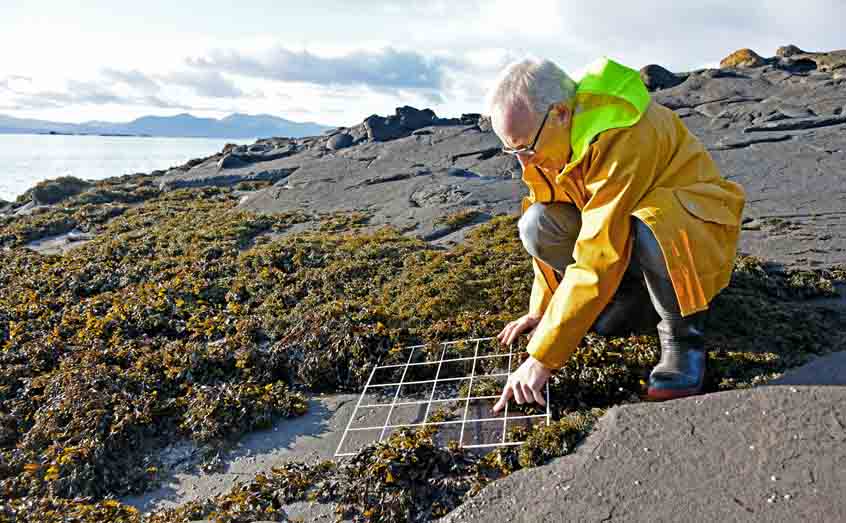SAMS news room
Taking a poll of the ocean electorate

An international group of marine scientists has compiled the most comprehensive assessment of how ocean warming is affecting the mix of species in our oceans – and explained how some marine species manage to keep their cool.
Researchers from the UK, Japan, Australia, USA, Germany, Canada, South Africa and New Zealand analysed three million records of thousands of species from 200 ecological communities across the globe.
Reviewing data from 1985 – 2014, the team led by Prof Michael Burrows of the Scottish Association for Marine Science (SAMS) in Oban showed how subtle changes in the movement of species that prefer cold-water or warm-water, in response to rising temperatures, made a big impact on the global picture.
The findings, published in the journal Nature Climate Change [https://www.nature.com/articles/s41558-019-0631-5], show how warm-water species increase and cold-water marine species become less successful as the global temperature rises. However, the study also suggests that some cold-water species will continue to thrive by seeking refuge in cooler, deeper water.
Prof Burrows said: “The global picture shows what we suspected was happening: changes in the composition of communities exactly reflect ocean warming. However, within these communities are subtle changes that make a huge, and previously unknown, difference to the bigger picture.”
The truly global study looked at data from the North Atlantic, Western Europe, Newfoundland and the Labrador Sea, east coast USA, the Gulf of Mexico, and the North Pacific from California to Alaska.
While the global warming trend was widely seen, the North Atlantic showed the largest rise in average temperature during the time period. However, for fish communities in the Labrador Sea, where the temperature at 100 metres deep can be as much as five degrees Celsius cooler than the surface, moving deeper in the water column allowed the cold-water species to remain successful.
Prof Burrows added: “From 1985 – 2014 we conducted the equivalent of an electoral poll in the ocean, showing swings between types of fish and plankton normally associated with either cold or warm habitats. As species increase in number and move into, or decline and leave, a particular ecological community, the make-up of that community will change in a predictable way.
“Most of the data collected were targeted surveys of commercial fish stocks, so the changes seen reflect those likely to be seen in fish markets as cold-water fish like cod and haddock decline while warm-water species like red mullet increase with warming.”
There has been a temperature rise of almost one degree Celsius in some parts of the ocean since 1985, a significant change in just three decades, says Prof Burrows.
“While this may not sound like a big change, it has a considerable impact on species that may already be on, or close to, their maximum temperature tolerance. A gradual temperature change like the one we are witnessing is not going to cause extinctions overnight but it is affecting the success of many species, not least zooplankton such as copepods, which are crucial to the ocean food web.”
The paper, 'Ocean community warming responses explained by thermal affinities and temperature gradients', can be accessed here: https://www.nature.com/articles/s41558-019-0631-5#
Contributing authors represent 18 institutes worldwide: Scottish Association for Marine Science; National Oceanography Centre; Memorial University of Newfoundland; University of Auckland; Sir Alister Hardy Foundation for Ocean Science; Plymouth University; University of Tasmania; Bren School of Environmental Science and Management, University of California; National Center for Ecological Analysis and Synthesis, University of California; Bangor University, Rutgers University, Arctic Research Center, Hokkaido University; Graduate School of Environmental Science, Hokkaido University; Global Station for Arctic Research, Global Institution for Collaborative Research and Education, Hokkaido University; University of the Sunshine Coast; Nelson Mandela University; Alfred Wegener Institute; The University of Queensland.
